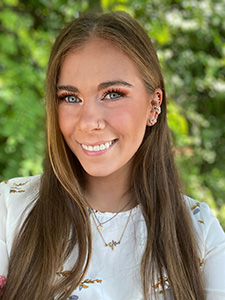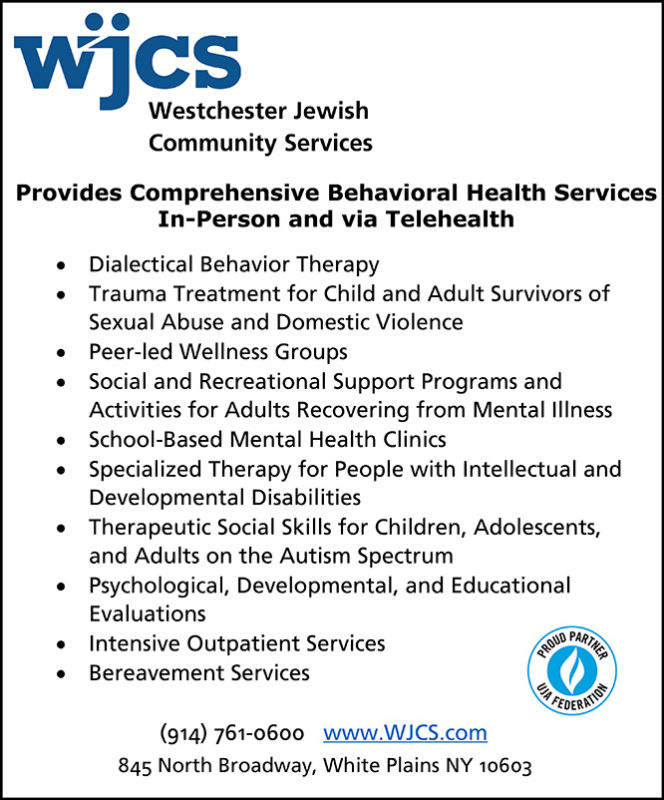The statistics regarding youth mental health are not only strikingly frightening but they point to the inexcusable reality that what is currently being done to address the problem is not working. According to the National Alliance for Mental Illness (NAMI), one in five teens and young adults live with a mental health disorder. Of youth with major depression, 64.1% do not receive any mental health treatment. Additionally, in 2018, the Center for Disease Control (CDC) reported that suicide is the second leading cause of death for individuals age 10-34.

Ali Rainone, LMSW
When it comes to addressing mental health and suicide, youth come with their own unique challenges. Their physical, mental, emotional, and social development have a direct impact on their mental health and can lead to suicidal ideations, attempts, and completions, substance use, self-harm, and other maladaptive coping skills. Due to their particular set of developmental needs, this demographic may struggle to respond to treatment modalities primarily designed for adults. Therefore, it is vital that the adults in a youth’s life be able to respond to signs of suicide risk and emotional crisis in an effective way. Fortunately, many evidenced-based treatments have been adapted and modified to specifically target their needs. Those changes, combined with the introduction of training programs such as the evidence-based and nationally recognized certification course Youth Mental Health First Aid (YMHFA), enable youth to get the help they deserve earlier and, thereby, have a more successful outcome.
Westchester Jewish Community Services (WJCS), the largest provider of outpatient community-based mental health services in Westchester county, offers YMHFA trainings to teachers, first responders, health and human services workers, parents, coaches, camp staff, and individuals working in other youth-facing organizations. Recognizing the need for increased awareness of risk factors and warning signs, the training teaches adults to identify, understand, and respond to various mental health challenges and crises, highlighting suicide. The 6-hour course provides basic knowledge of mental health diagnoses and challenges as well as a 5-step action plan used in a variety of crisis and non-crisis situations. Participants learn the skills needed to reach out and provide initial help and support to a youth who is struggling. This first aid is given until appropriate treatment is received or until the crisis resolves.
YMHFA recognizes that adults often feel scared, sad, helpless, and confused about what to do and say when an adolescent or young adult has a mental health crisis. It is bewildering to see a young person, with seemingly endless opportunities and life ahead, struggle with overwhelming emotions and hurt. It is even more difficult to comprehend that thinking about suicide can be seen as a comforting escape to a youth because he or she views it as a way out of pain. However, despite this uncertainty, the adult must respond to each situation thoughtfully and empathetically.
It is crucial that adults approach a young person who expresses suicidal thoughts and feelings in a way that is validating, caring, and helpful. At a time when a youth feels most vulnerable, every step taken needs to make him or her feel safe and seen, not judged or misunderstood. Some adults freeze in these situations because they do not have the knowledge, skills, or resources to strategically move forward.
In YMHFA trainings, adults learn to give up misconceptions, such as thinking that talking about suicide to a struggling teen will plant the idea in their head or assuming that a youth is talking about suicide just to gain attention and therefore should be ignored. Without a doubt, a young person explicitly voicing suicidal thoughts and feelings is seeking attention – and rightfully so. Those who verbalize suicidal thoughts or intentions are allowing their deepest internal screaming to be heard in the outside world. As adults, we must be ready to help them.
YMHFA emphasizes that all suicidal statements must be taken seriously. Acknowledging someone’s pain and mastering the art of sitting in that heavy space with them is extremely powerful. Lending your unconditional head, heart, and ear to open the lines of communication can contribute to shattering the stigma and taboo that is keeping the one who is suffering feeling alone or hopeless.
The balance between needing to take action but not overreacting can be hard to strike. Similarly, there is also a fine line between remaining calm but not under reacting. A reaction that leans towards either extreme can leave the youth feeling fear, shame, guilt, or regret. The importance of being genuine, curious, and nonjudgmental cannot be overstated. Asking open-ended questions and giving the young person an opportunity to tell his or her story is a valuable tool to establish trust and clarify feelings. It is also useful to explore core thoughts and feelings that are often disguised as anger, frustration, defiance, or irritability. The conversation will not emulate a therapy session or take the place of professional treatment, but rather offer a listening ear and beginning step toward finding wellness.
As a youth shares suicidal thoughts and feelings, it can be tempting to highlight the good in their life, making statements about their high grades, large friend group, or athletic and artistic talent. While these may be true, bringing them up to combat suicidal thoughts or feelings will only discredit their pain. We must also be vigilant to not undermine their pain. Making threats, trying to evoke guilt, or making accusations of being histrionic—saying things like “If you say that again I’m calling 911” or “Do you know what this would do to your family?” or “Stop being dramatic, it was just a breakup” are absolute conversation enders.
When asking the pressing question about intent, the best practice is to be direct, confident, and reassuring. Consider your relationship with the youth and the most natural way for you to ask if they are thinking of suicide. If it feels uncomfortable to go straight to the point, preface the question with details about what is going on in the young person’s life and how they are feeling. For example, “I know that you’re going through a breakup right now and feel really sad and alone. Are you having thoughts of hurting yourself?.” Be collaborative and include the youth in the problem-solving process, even if what ultimately has to be done is something they do not want, such as getting their caregivers or professionals involved. Above all, thank them for being brave and honest enough to share their story and let you in.
Since 2013, WJCS has been the driving force in the Mental Health First Aid initiative, having trained nearly 2,000 participants throughout Westchester in both Youth and Adult courses. There are now virtual and blended learning versions of Youth Mental Health First Aid in order to reach a larger audience and the updated curriculum includes such topical issues as social media, bullying, and trauma. One of WJCS’s strongest partners in the Mental Health First Aid initiative is the Westchester County Department of Community Mental Health.
“The mental health of all Westchester County youth is a top priority,” said Michael Orth, Commissioner of the Westchester County Department of Community Mental Health. “YMHFA training is a great tool that provides adults with concrete skills in identifying and deescalating crisis situations, as well as developing and implementing appropriate action plans, thus improving the safety of our youth.”
Overall, our youth are exceptionally resilient and have the maturity and ability to voice and express their pain, despite all the hardships they may face. Unlike many adults, they are often less afraid to be vulnerable and ask for help. Therefore, the adults in their lives must be educated, trained, and supported so they are prepared to respond effectively for when youth do reach out. If not handled properly, it may be the last time that young person will.
Ali Rainone, LMSW is a social worker at Westchester Jewish Community Services (WJCS) in the Yonkers School-based Clinics and the Mental Health First Aid Coordinator.





